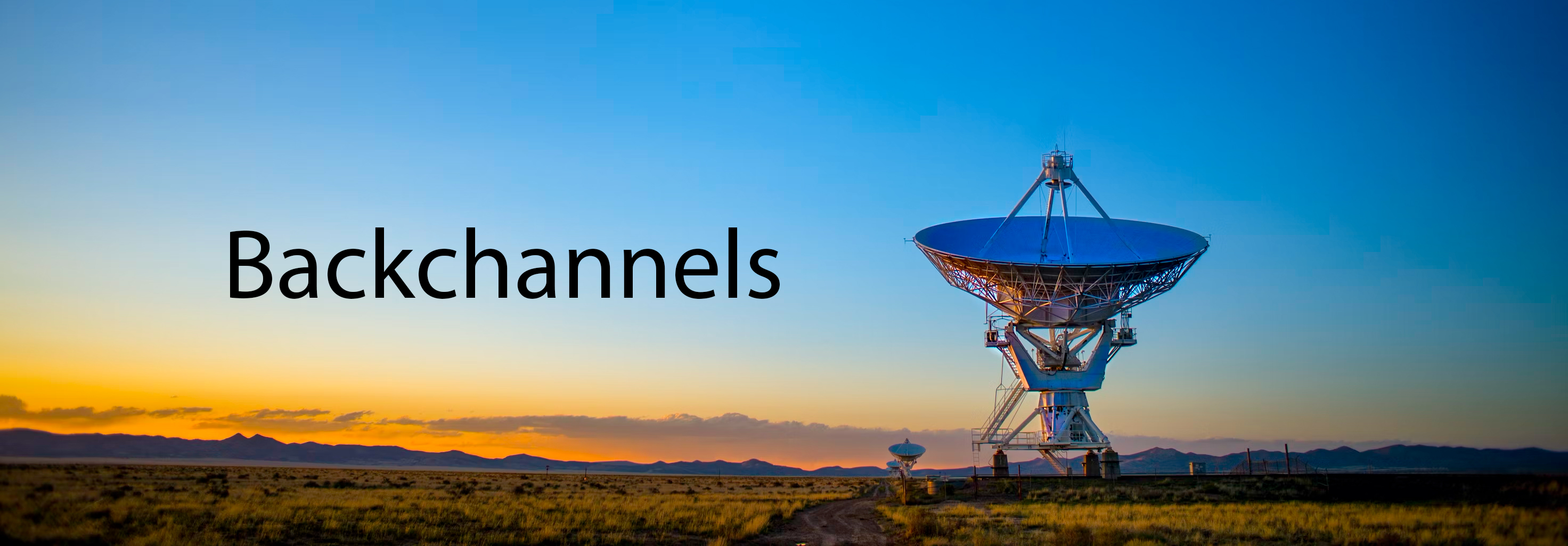
Linguists first used the term backchannel to refer to the spontaneous responses and signals that provide interactivity to what is only apparently a one-way communication. Social media users have adopted the term to refer to the unofficial, multi-directional online conversation that parallels formal academic exchange at a lecture or conference. The Backchannels blog is intended to have a similar relationship to scholarly discourse in STS. It provides an outlet for alternative-format scholarly communications, publishing shorter, timelier, media-rich communiques of interest to the global STS community. The editors welcome proposed contributions.
Killing Kindly: Invasive Species, Care, and Greenwork in Aotearoa New Zealand
Mar 2 2026
As part of the research that considers killing as care, this essay discusses kindness as a way to approach the rich scholarship of multispecies care by framing it as resistance to acquiescing to the moral certainty of killing invasive species by negotiating cruelty and avowing ambiguity. Based on ethnographic research conducted in Aotearoa New Zealand, this piece outlines some of the ways to examine care and killing by analysing how and when kindness affects the work of killing for conservation.
A Conversation on Embryonic Indonesian STS
Feb 23 2026
This post is a conversation between Irina Rafliana, Indrawan Prabaharyaka, and Casper Bruun Jensen on the challenges and possibilities of embryonic Indonesian STS.
Sex, Gender, and Hybrid Primate Worlds
Feb 16 2026
This post is the fourth in a four-part series on “Sex and Gender in Primate Worlds,” following up on a panel of the same name at the 4S 2025 convening in Seattle, Washington, held on September 6th, 2025. This post reflects on the conference paper, “Toward a Hybrid Primatology: Purity and Knowledge in the Anthropocene."
The Reflexive Primatologist
Feb 2 2026
This post is the third in a four-part series on “Sex and Gender in Primate Worlds,” following up on a panel of the same name at the 4S 2025 convening in Seattle, Washington, held on September 6th, 2025. The following post in the series will be released on February 16th, 2026.
Holding the Line: Values Drift, AI Anomia, and the Craft of Accountable Leadership
Jan 28 2026
This post introduces the work and perspectives of 4S Backchannels Editorial Team member Dr. Christine Haskell. Through their instruction and advisory capacities with organizations navigating AI and data governance, Dr. Haskell identifies three significant trends: values drift, AI anomia, and artificial mirroring. These increasingly emerging in AI-intensive environments, and are examined in this post introducing Dr. Haskell to the Backchannels readership and broader 4S network.
Location, Location, Location: Laboratory Politics in Late 20th Century Simian Psychology and Linguistics
Jan 19 2026
This post is the second in a 4-part series on “Sex and Gender in Primate Worlds,” following up on a panel of the same name at the 4S 2025 convening in Seattle, Washington, held on September 6th, 2025. The following post in the series will be released on February 2nd, 2026.
Beyond 'Yes or No': Affective Consent, and The Complications of Acknowledging Non-Verbal Consent
Jan 5 2026
This blog post welcomes Bri Matusovsky as a new assistant editor to the 4S Backchannels Global North team. Bri is a PhD Candidate in Medical Anthropology at UC San Francisco - UC Berkeley.
This post is the first in a 4-part series on Sex and Gender in Primate Worlds, following up on a panel of the same name at the 4S 2025 convening in Seattle, Washington. The following post in the series will be released on January 19th.
The Power of Instauration: Reimagining Aesthetic Practices
Oct 27 2025
A report from the panel “Creating, Crafting, Designing, Fashioning, Moulding, Shaping, Fixing. Aesthetic Practices as Instaurative Practices: How to Account for Them and for the Good they Produce?” at the 10th STS Italia Conference, “Technoscience for Good,” Milano, 11–13 June 2025
(Re)reading dependency: technology and power in Latin America / Releer la dependencia: tecnología y poder en Latinoamérica
Dec 15 2025
In this reflection piece, Luciana Musello shares the experience of rereading dependency theory in the age of technoimperialism alongside an interdisciplinary group of Latin American scholars
The bush turkey among the cats: misrecognition, modifications, and expertise in AI-operated lethal cat control
Dec 8 2025
Many emerging solutions to environmental problems are imagined as technoscientific. Here I detail how one AI-equipped conservation tool is made effective only through the labour, skill, and care of practitioners.
